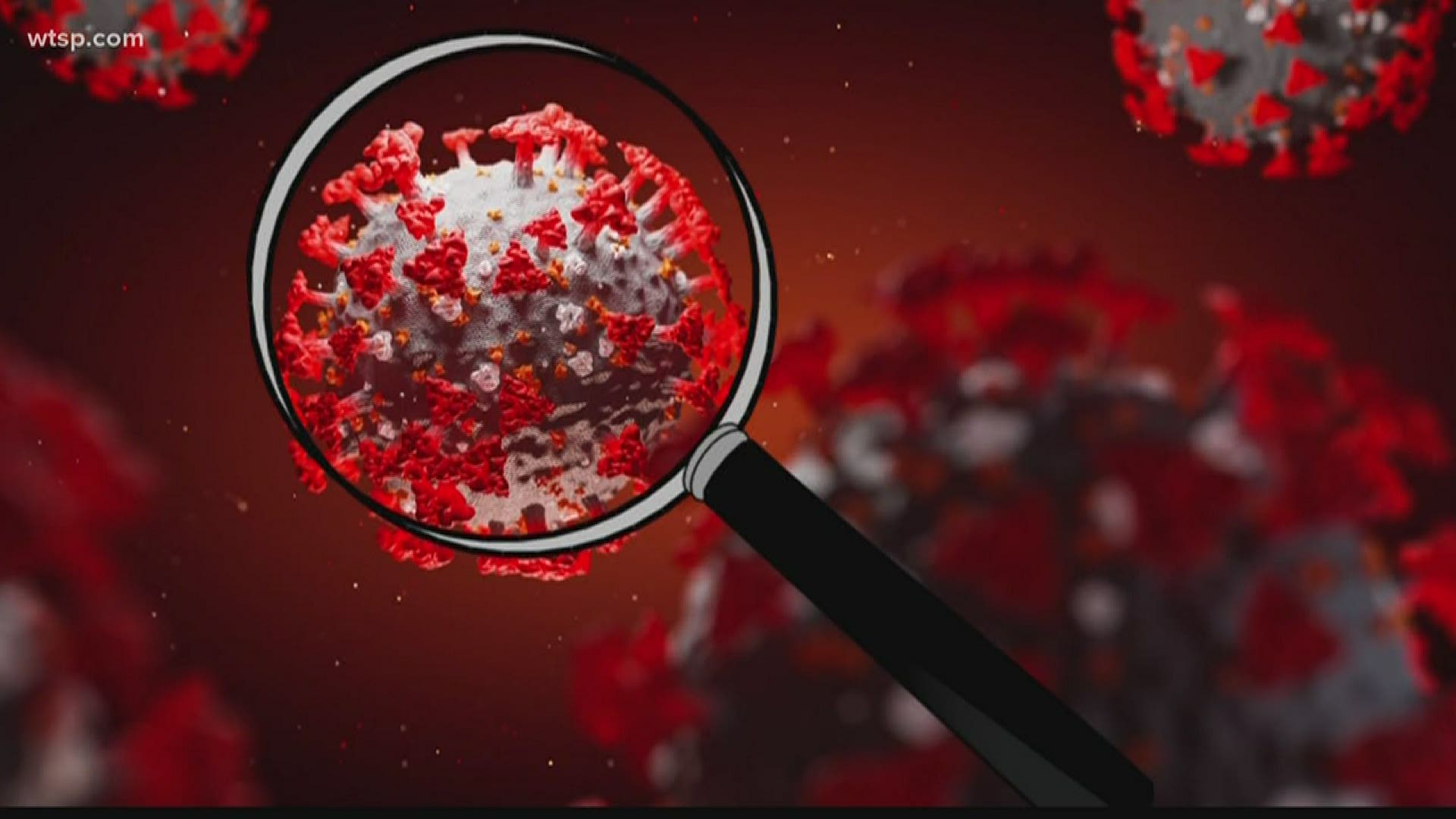ST. PETERSBURG, Fla. — Think of them as virus “detectives.”
Contact tracing—identified as one key to successfully and safely reopening Florida—is the process of quite literally contacting individuals who are infected with a particular communicable disease and then tracing where they’ve been to determine who else might’ve been exposed.
Those individuals can then be alerted, tested and quarantined to stop further spread.
“Contact tracing enables us to gather information and make better decisions on our whether our countermeasures are working—if social distance is needed, if people are able to spread this without showing symptoms,” said Miriam F. Escobar, a University of South Florida student.
Escobar is one of more than 60 students and faculty spread out across the state volunteering to assist the Florida Department of Health with contact tracing for COVID-19 coronavirus.
“It’s critical,” she said of the very basic epidemiological practice, commonly used to track the spread of other diseases, like HIV.
Escobar, who is set to receive her master's degree in public health this summer, recently spent two weeks in hard-hit south Florida assisting the Miami-Dade Department of Health.
Working off lists of people who have tested positive for the coronavirus, tracers call patients to establish who they live with, who they’ve had recent contact with and whether they’ve recently traveled.
From there, tracers are then supposed to follow up with other individuals who might've been exposed.
“We establish close contact—anybody who was within six feet of you that you spent more than 10 minutes with,” Escobar said. “So it’s not somebody you’re randomly passing by in a store.”
The work can be grueling—12 hour days, five days a week, and then six hours each day on the weekend, making anywhere between 20 to 30 calls in one day, Escobar said.
“Every day we were assigned additional cases and it was just really overwhelming,” she said. “You’re getting through your five or seven you’re trying to follow up on from yesterday and then you’ve got more positive cases you’re trying to investigate and you’re just one person.”
Gov. Ron DeSantis, in announcing his plans to reopen the state last week, said contact tracing has been happening in Florida since the start of the COVID-19 outbreak.
“Contact tracing was always part of our strategy,” DeSantis said.
Even so, as the state of Florida begins the process of reopening, recommendations suggest contact tracing efforts here are lagging.
There are just 500 contact tracers for the entire state, according to the Florida Department of Health, or 2.3 tracers for every 100,000 people, according to a state-by-state analysis by NPR.
That’s well below the 30 tracers per 100,000 people recommended during a health emergency by the National Association of County and City Health Officials.
Overall, states average 12 tracers per 100,000 people, according to NPR’s analysis. But some have plans to hire or are currently in the process of hiring more tracers. Michigan, a state with roughly half the population of Florida, plans to hire an additional 3,400 tracers, bringing that state’s projected total to 35.3 tracers per 100,000 residents.
Florida would have to hire thousands to even come close to recommendations.
DeSantis said last week the state would “probably” add more “if circumstances warrant it.” As of now, the Sun-Sentinel reports there are no immediate plans to hire more.
In the age of cell phones though, contact tracing might no longer have to rely solely on human tracers doing the leg work.
The Centers for Disease Control and Prevention is encouraging the use of digital tools to expand the reach and efficiency of contact tracing.
Google and Apple are in the midst of working to develop an app to track people who may have been infected by coronavirus carriers.
The idea has raised concerns about privacy.
People who test positive for COVID-19 would be able to put their results into the app without revealing personal information and any other person who also has the app and was in contact with the infected person would be notified.
What other people are reading right now:
- Cleatus, the beloved Florida Aquarium goliath grouper, dies
- Don’t worry about Giant Asian Hornets coming to Florida. It could take years
- DeSantis orders investigation into unemployment system following push from Florida's agriculture commissioner
- Pinellas County offers free coronavirus tests
- Miami Beach closes popular spot after crowds refuse to follow rules
- Florida Health quietly releases more specific data on nursing home deaths
- Coronavirus in context: Florida COVID-19 cases explained in 5 charts
FREE 10NEWS APP:
►Stay In the Know! Sign up now for the Brightside Blend Newsletter



